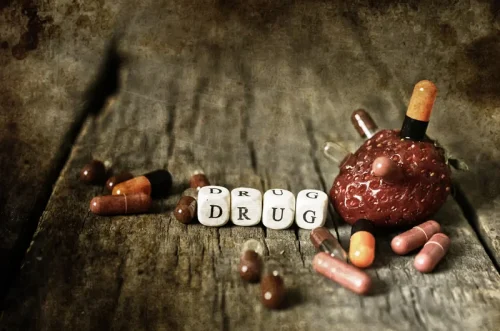Because he is a member of a support group that stresses the importance of anonymity at the public level, he does not use his photograph or his real name on this website. According to the CDC, more how long do alcoholics live than one million people die yearly of cirrhosis, including over 40,000 people in the United States. Given this, for those who drink, just a light amount of alcohol seems to be most beneficial.
Study populations
Any discussion of the risks and benefits of alcohol consumption must address the issue of defining relevant terms. For example, few people would disagree that “excessive” drinking is harmful. Attempts to define “excessive” precisely, however, are likely to generate considerable discussion. Similarly, the terms “abstainer,” “light,” “moderate,” “heavy,” and “heavier” are commonly used to describe types of drinkers, although no standard definitions exist for these drinking levels. Many studies refer to respondents in the drinking category with the lowest mortality as “moderate drinkers” (Ferrence and Bondy 1994). Consequently, the definition of moderate drinking varies substantially across studies, ranging from less than one drink per day to three or more drinks per day (Ferrence and Bondy 1994).
Get the latest in health news delivered to your inbox!

Agape Treatment Center for substance abuse embraces a universal, unconditional love that transcends, that serves regardless of circumstances. We provide individuals all over the country with the opportunity to achieve the gift of lasting sobriety. Stephanie Robilio is an accomplished Clinical Director at Agape Behavioral Healthcare. With a Master of Social Work degree, LCSW license, and extensive training in Rapid Resolution Therapy under her belt, she brings a wealth of expertise to her role. Her unique combination of education and experience allows her to provide exceptional care to clients and lead her team with confidence. Stephanie’s joy comes from witnessing the moments when her patients creatively connect the dots and bravely move toward reclaiming their power.

The Link Between Alcohol Consumption and Life Expectancy
The final stage of an alcohol use disorder is end stage alcoholism, which results from years of alcohol abuse. The individual in end stage alcoholism will experience serious mental and physical conditions, including possible life-threatening health conditions. Other conditions such as obesity, high cholesterol, and bile duct disease can also lead to cirrhosis. Relative risk of dying from various causes for middle-aged men consuming different alcohol amounts.
- It’s common at this point for alcoholics to have lost their jobs as well their friends and family.
- Whiskey has also demonstrated numerous beneficial effects over a range of studies.
- Cirrhosis of the liver occurs when healthy liver tissue is replaced by scar tissue.
- The early or adaptive stage of alcoholism marks the beginning of an alcoholic’s struggle with addiction.
The effects of modest drinking on life expectancy and mortality risks: a population-based cohort study
Personalized medical advice from healthcare professionals remains the gold standard for assessing the impact of alcohol on life expectancy. These calculators, while informative, should be used with an understanding of their limitations. They cannot account for all individual health variables or predict the exact impact of alcohol on a person’s life expectancy.
- However, in terms of expanded CVD (i.e., CVD plus type 2 diabetes and kidney disease), the risk is significantly reduced by 14% compared to non-drinkers.
- Secondly, there might be residual confounding factors in addition to the 15 confounders we controlled, such as the mental and socioeconomic status in suicide analysis.
- Many people refer to alcoholism as a “family disease” because it can have a major impact on all members of the family whether they realize it or not.
- By the time they’ve reached the third and final stage of alcoholism, drinking has consumed their lives.
- Around 20 percent of the alcohol a person drinks is absorbed rapidly into the bloodstream through the stomach.
a higher risk of certain cancers, including those of the digestive tract (including colon cancer), breast, and liver
- Currently, there is a test that can detect alcohol use up to 80 hours, or 3 to 4 days, after the last drink a person had.
- Regularly drinking above the UK alcohol guidelines can take years off your life, according to a major report.
- However, there is a ‘U’ shape curve with alcohol; a little is good, and after that point, progressively more seems to equal progressively higher risk.
- Drinking distinguished “modest drinker” (no more than one drink a day) from “regular drinker”.
- When you drink more alcohol than the liver can process, it can become severely damaged.
- In light of these findings, it is clear that heavy drinking can significantly curtail life expectancy, with men and women who consume alcohol at high volumes facing a markedly higher risk of death compared to moderate or non-drinkers.
When the immune system becomes damaged by heavy drinking, it can weaken functions like the lung immune response, increasing the risk of respiratory diseases like pneumonia. With a weakened immune system, an alcoholic’s life span drastically declines. Many people know of the short-term consequences of drinking too much such as hangovers, drunk driving accidents, drunken injuries, alcohol blackouts, and alcohol poisoning. However, fewer people stop to think about the real cost of long-term alcohol abuse including the worrisome relationship between drinking and life expectancy. Specifically, the research shows that moderate drinkers show decreased mortality risk compared to non-drinkers. The amount of time you have to live after your diagnosis depends on your health and how far the disease has progressed.

The concentration of alcohol in the blood, or BAC, helps to determine how long alcohol stays in the system. There are many factors that can affect how alcohol is processed by the body. Once alcohol reaches the bloodstream, it goes to the liver to be processed or metabolized. Additionally, drinking can lead you to urinate more often and cause dehydration, so you can prevent any negative effects by taking in the water.

Leave a Reply